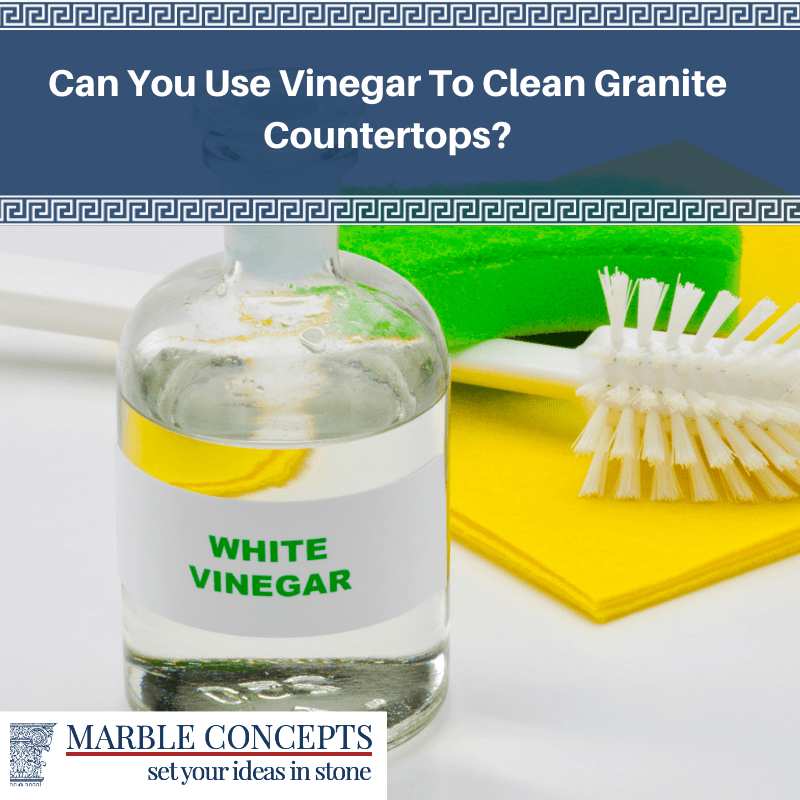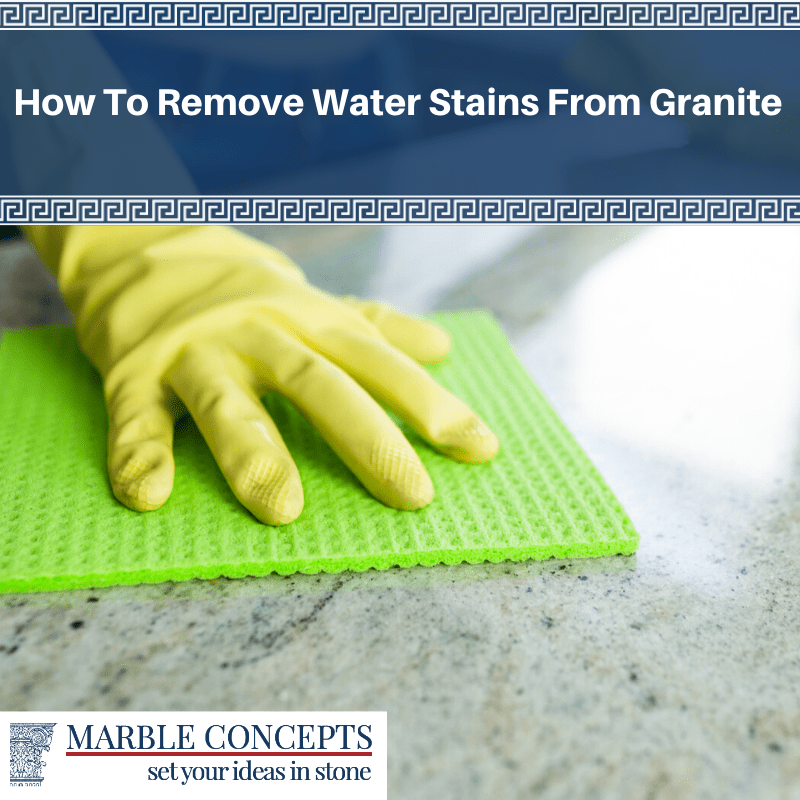An appealing part of having granite countertops is knowing that the surface is durable. Yes, granite does require some maintenance, but it is simple enough that you can use the stone anywhere in your home. However, with more and more people turning to natural cleaning solutions, we are hearing about more granite countertops looking lackluster and worn down. What is happening?
Well, if you have picked up vinegar with hopes of removing stains and grime from granite, you may be doing more harm than good. Vinegar on granite countertops is a no-no. Let’s talk about why.
Why People Use Vinegar For Cleaning
Vinegar has been a household cleaning staple for many, many years. After all, the magic of vinegar is well known. Vinegar can knife through crusted over splatter on the backsplash, remove stubborn stains, and even eliminate odors. The reason it is such a useful cleaning agent is the acidity.
Although vinegar cleaning makes its rounds as a fad on Pinterest and other social media sites, that does not mean you should immediately grab a bottle to wipe up messes. The acid in vinegar can be detrimental to certain materials, including wood, delicate fabrics, and your granite countertops.
Vinegar Should Never be Used on Granite
Let’s talk a bit about granite. Being that it is a natural stone dredged up from the Earth’s crust, it is not going to be impervious. Granite is one of the hardest materials on the planet and has high heat, pressure, and cold resistance. You can rest a baking pan of cookies fresh from the oven directly on a granite counter without causing any damage.
But granite is also porous, which is why it is vulnerable to staining and etching. When you wipe granite down with acidic vinegar, the liquid will flow into the microscopic pores of the stone and start to eat away at it. That is why you should never use acidic liquids, like lemon juice, ammonia, or even sodas, to clean granite.
Etching diminishes the stunning appearance of granite. In essence, etching is not just scratching—it is a chemical reaction. Over time, your granite will look duller and less vibrant.
That is why you must not use vinegar to clean granite countertops. You will ruin your counters.
The Right Way to Clean Granite Countertops
Now that you know the answer to “can vinegar be used to clean granite countertops?” let’s discuss the proper way to care for granite. Make sure you are using cleaning solutions that are not acidic. In other words, if you have a quick mess to wipe up, a bit of mild dish detergent or soap, warm water, and a soft cloth or paper towel will suffice. Never use abrasive cleaning tools, like scoring sponges or steel wool.
As long as you mop up any spills that could stain the seal or the stone swiftly, there should be no problems.
But there will come a time when you need a deeper clean than what soap and water can provide. Properly caring for granite involves using special formulas designed for granite countertops. If you cannot find granite cleaners in a store near you or a supermarket, search for granite companies nearby. They should have some products for you to use.
To maintain the top condition of natural stone countertops, you should use a granite cleaner once daily or at least a few times a week.
What Else Can You Do to Keep Granite Countertops in Good Condition?
Aside from diligently cleaning your granite, what else can you do? The first tip is to keep liquids like vinegar, citrus juices, and other acidic items away from granite. Other simple actions, like cleaning up messes immediately, will preserve the luxuriousness of your granite. You should also use coasters beneath cold drinks to keep condensation from seeping into the stone. While this is usually not something you need to be overly concerned about, some counters have not been properly sealed and may get water rings or stains.
Sealing your countertops is important. Usually, the granite company that installed your countertop (unless it was already in your house when you moved in) will have applied a seal. You may have to get the seal reapplied once in a while, and there are some tests to figure out if the seal has weakened. That said, sealing is easy and you can do it yourself or hire professionals to help out.
If Vinegar on Granite Countertops is Bad, How Do I Remove Stains?
Believe it or not, removing stains from granite is not too challenging. Most stains come from oil or water, so a poultice is all you need. A poultice is a combination of ingredients, like water, hydrogen peroxide, baking soda, and so on, that is made into a paste. Apply the poultice to the stain, cover with some plastic wrap, then wait for 24-48 hours before wiping it away gently.
The stains should have lightened considerably or vanished entirely.
Ask Marble Concepts!
Maintenance is important if you want to keep your granite countertops looking their best. Unfortunately, many people think that, because granite is so resilient, that they can use vinegar. This is a bad move, and it sometimes leads to etching. Don’t use vinegar. Instead, get a proper cleaning solution or use soap and water to wipe up messes. Or, you can ask Marble Concepts for assistance!
We have been a trusted name in the granite business for a long time. So give us a call at 215-396-7393 or fill out the contact form to learn more.








